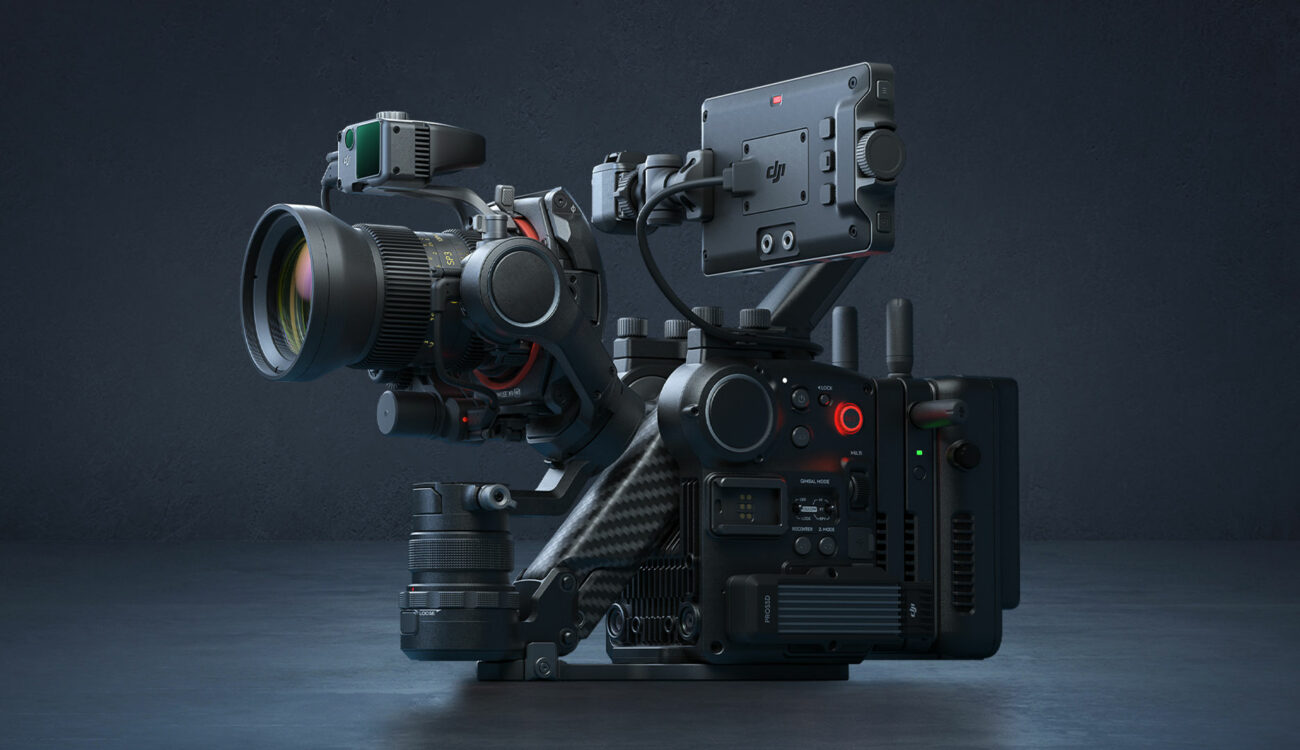
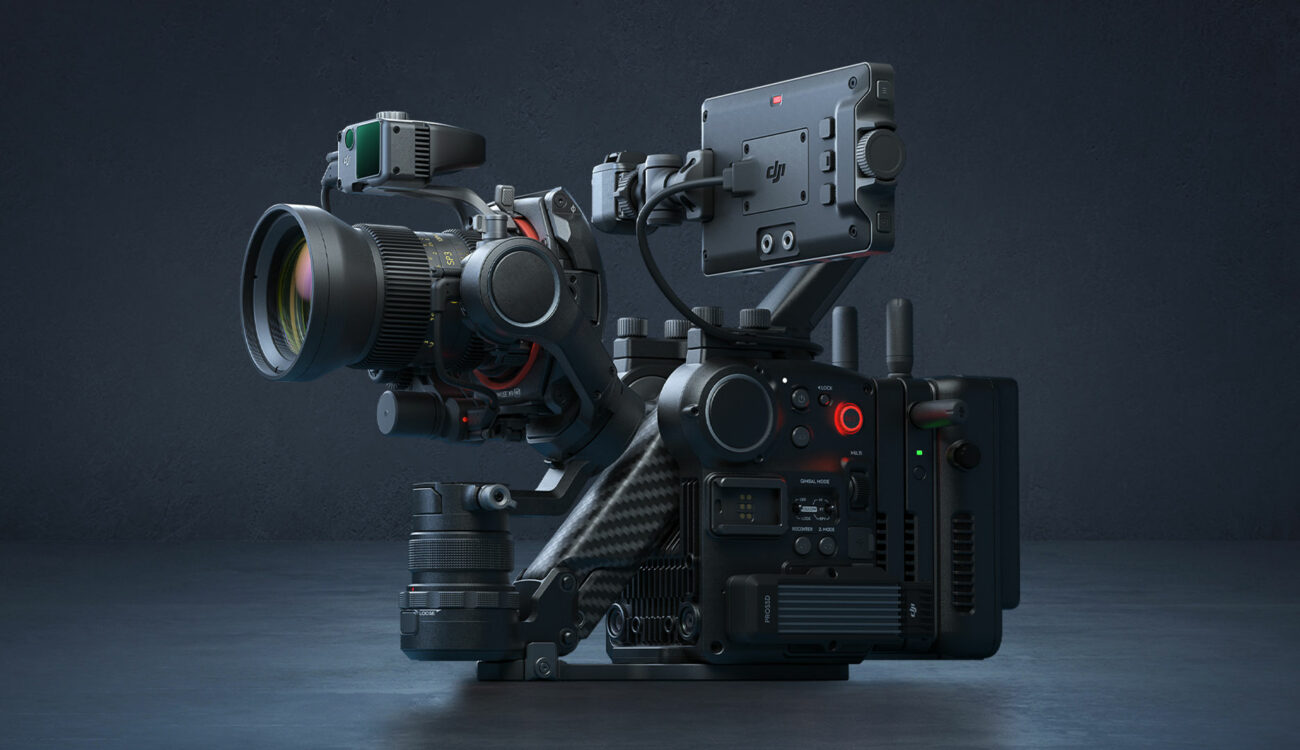
DJI Ronin 4D-8K combo introduces the new Zenmuse X9-8K gimbal camera module. This equips the Ronin 4D with up to 8K 60fps (or 8K 75fps in 2.39:1), and 4K 120fps full-frame video in ProRes RAW. Furthermore, the Zenmuse X9-8K includes 9-stop built-in ND filter, and it is compatible with the LiDAR focusing system. The Ronin 4D-8K combo is available for $12,838.
It is hard to believe, but DJI’s 4-axis stabilized cinema camera – the Ronin 4D – has been with us for over two years already. Announced back in October 2021, the Ronin 4D initially only came out with the Zenmuse X9-6K camera head. DJI was, however, always marketing the camera as being 8K-capable as well (with the 8K version coming later). Well, that moment is finally here as DJI today officially announces the Ronin 4D-8K with the new Zenmuse X9-8K camera head. Let’s take a look at the details. Also be sure to check out Nino’s first look review for more impressions!
Zenmuse X9-8K camera
When seeing the DJI Inspire 3 drone for the first time at this year’s NAB, I first thought the 8K camera on the drone was the same one that will come to the Ronin 4D. In fact, as DJI clarified right away, the Inspire 3 features a lighter version called Zenmuse X9-8K Air. It took another 7 months for the Zenmuse X9-8K to finally come to the Ronin 4D.
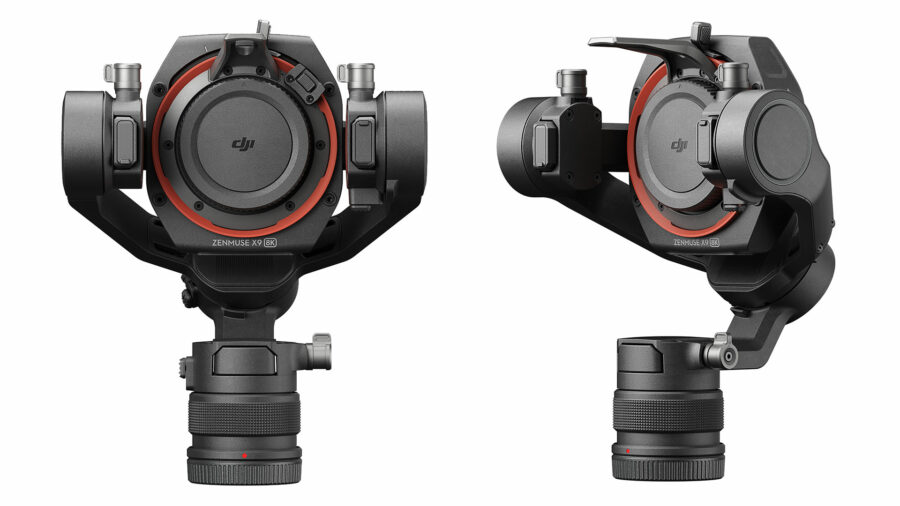
Looking at available resolutions and framerates, the Zenmsue X9-8K can achieve 8K in up to 60fps (DCI, 17:9) or up to 75fps (DCI, 2.39:1), 4K full-sensor in up to 120fps (DCI, 17:9), or 5.5K with Super35 crop in up to 60fps (DCI, 17:9) – all in ProRes RAW. 8K up to 30fps as well as 4K 120fps is also possible in ProRes 422 HQ. The 4K recording modes are additionally available in H.264 as well.

When it comes to dynamic range, DJI claims up to 14.7 stops for the Zenmuse X9-8K, but this number, of course, needs to be put into perspective by testing it in our lab. I can promise you we will perform the full lab test of the Zenmuse X9-8K soon. In the meantime, my colleague Nino included a preliminary lab test in his first-look review, so make sure to check that one out. For reference, here are the two existing lab tests – first the Ronin 4D-6K and then the Inspire 3 with Zenmuse X9-8K Air. It will be interesting to see if there are different numbers for the Zenmuse X9-8K and X9-8K Air.
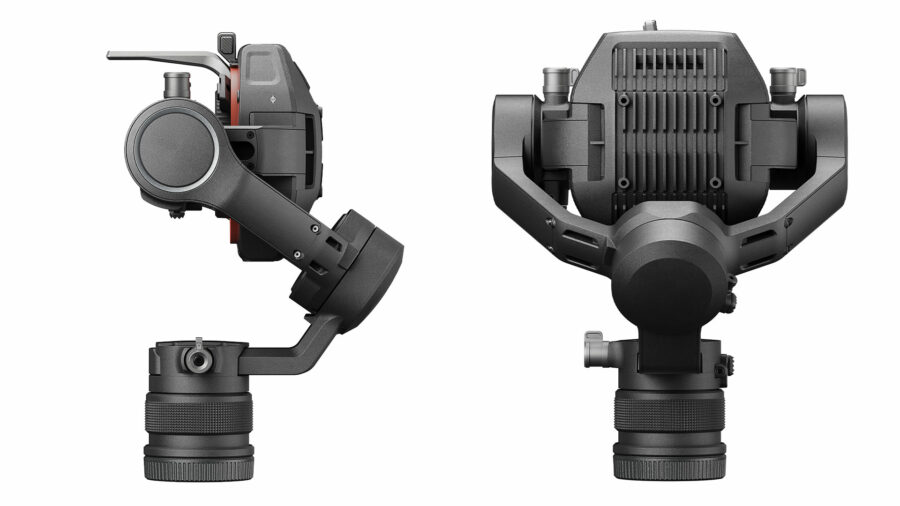
What I find impressive is that despite the compact size of the camera head, DJI somehow managed to fit a 9-stop physical ND filter inside. Talking about the stabilized camera head, it features a user-interchangeable lens mount (DL, E, L, PL, and M).
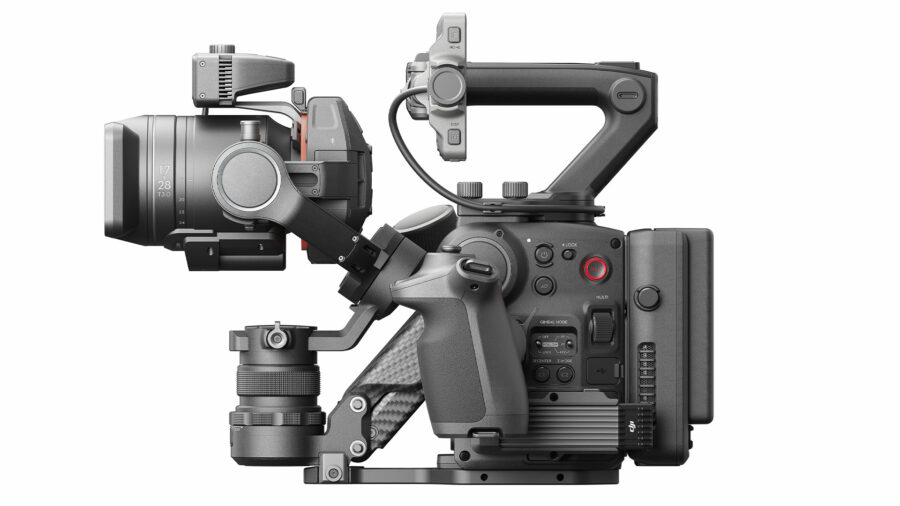
The X9-8K features an ISO range of EI 200 to EI 6400. The dual-native ISO values are 320 and 1600 (Dynamic Range expansion off – 12-bit) or 800 and 4000 (Dynamic Range expansion on – 14-bit). Thanks to the LiDAR focusing system, the camera provides autofocus on manual lenses and the so-called automated manual focus (AMF).
DJI Ronin 4D camera body
Earlier this year, we saw updates to the Ronin 4D in the form of a flex tether system and a ProRes RAW paid license option. Otherwise, the camera body is the same as with the Zenmuse X9-6K two years ago (plus firmware updates). For full specs and features of the Ronin 4D camera body, I recommend taking a look at my Ronin 4D news article or Nino’s Ronin 4D review from 2021.
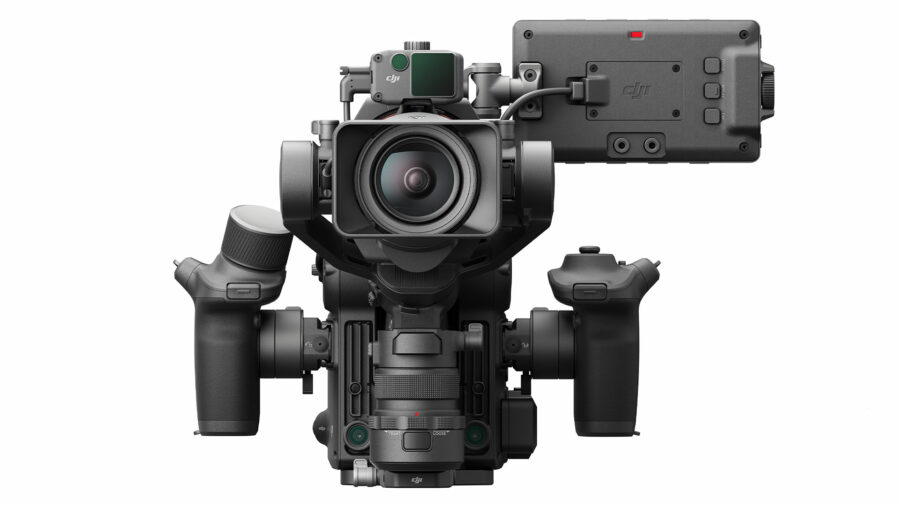
As we know, the Ronin 4D camera body can save recorded footage to three different types of media:
- CFexpress 2.0 Type B memory cards
- DJI PROSSD
- USB-C external SSD
Depending on the selected media, certain recording modes might not be available – it seems, for example, that ProRes RAW is only available when DJI PROSSD is used.
DJI Ronin 4D color science
Talking about color, DJI claims that the Ronin 4D-8K features the DJI cinema color science (DCCS) that uses a new algorithm with multiple LUT processing modules for precise color adjustments in various lighting conditions. This should result in natural and accurate skin tones.
The DJI-developed image processing platform of the Ronin 4D called the CineCore, is powerful enough to process 8K video signal into H.264, ProRes 422 HQ, ProRes RAW, or CinemaDNG footage. The high-bit-depth professional codecs along with a D-Log curve will provide the needed flexibility for color grading.
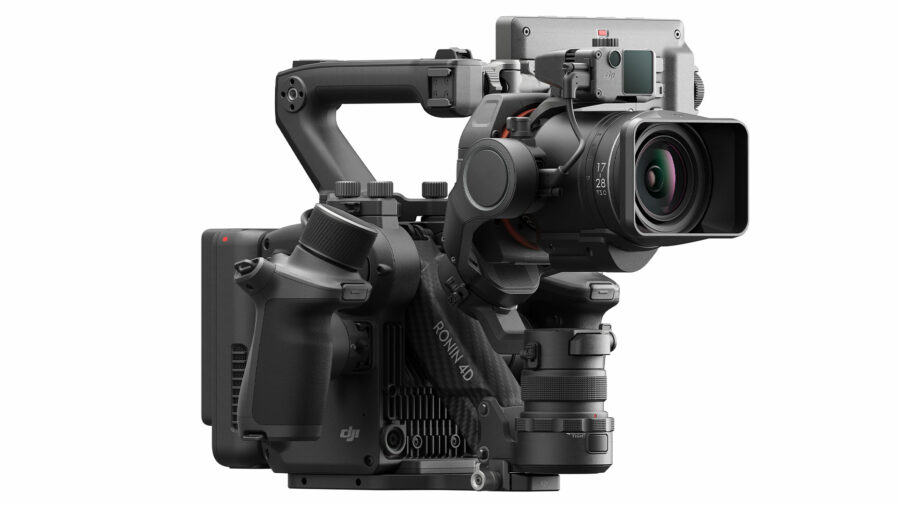
Another important feature is the ACES (Academy Color Encoding System) compatibility which is now officially certified for the Ronin 4D, Inspire 3, and Zenmuse X7.
Price and availability
The first option is to get the complete set called DJI Ronin 4D-8K combo. This will retail for $12,838 (from €12,758 in Europe depending on the VAT) and includes the following products:
- Ronin 4D main body
- Zenmuse X9-8K gimbal camera
- DJI DL PZ 17-28mm T3.0 ASPH lens
- PROSSD 1TB with a PROSSD mount
- Hand grips and a top handle
- High-bright main monitor
- TB50 intelligent battery
- LiDAR range finder
- DJI Ronin 4D RAW license key
- Various accessories, cables, and more
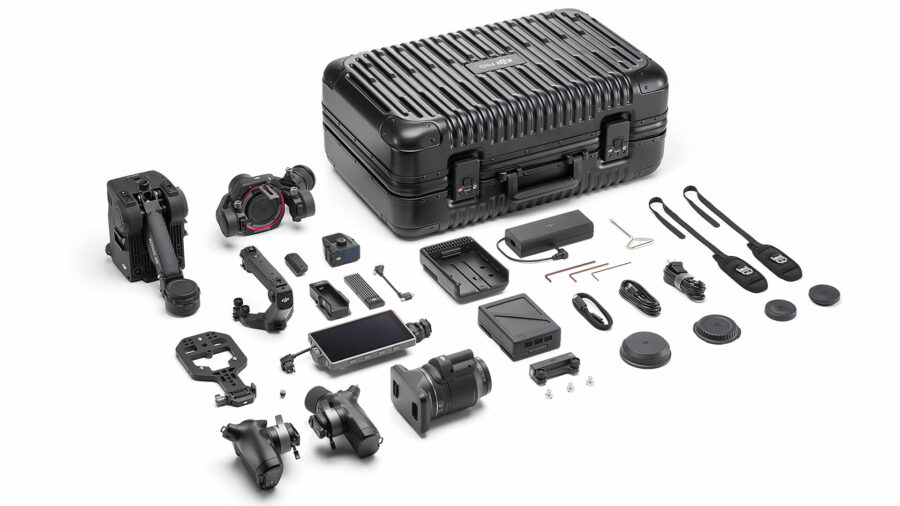
Another option will primarily be for those who already own the Ronin 4D with the Zenmuse X9-6K. DJI will be selling the new Zenmuse X9-8K gimbal camera separately for $3,599 (from €2,999 in Europe depending on the VAT).
For reference, the Ronin 4D-6K combo kit is currently selling for $6,799.
Are you using the Ronin 4D camera system for your productions? Do you see yourself upgrading to the Zenmuse X9-8K version? Let us know in the comments section underneath the article.






